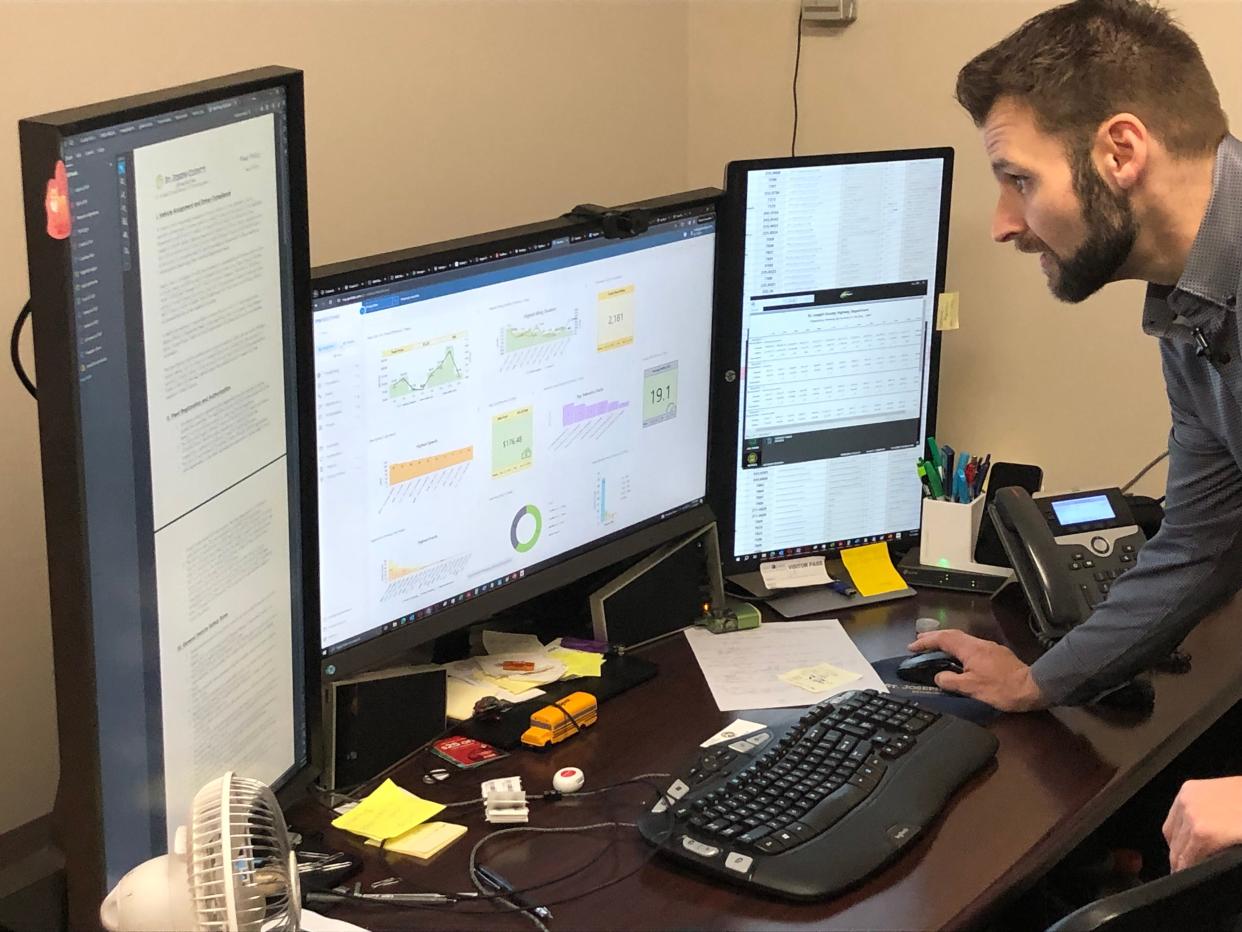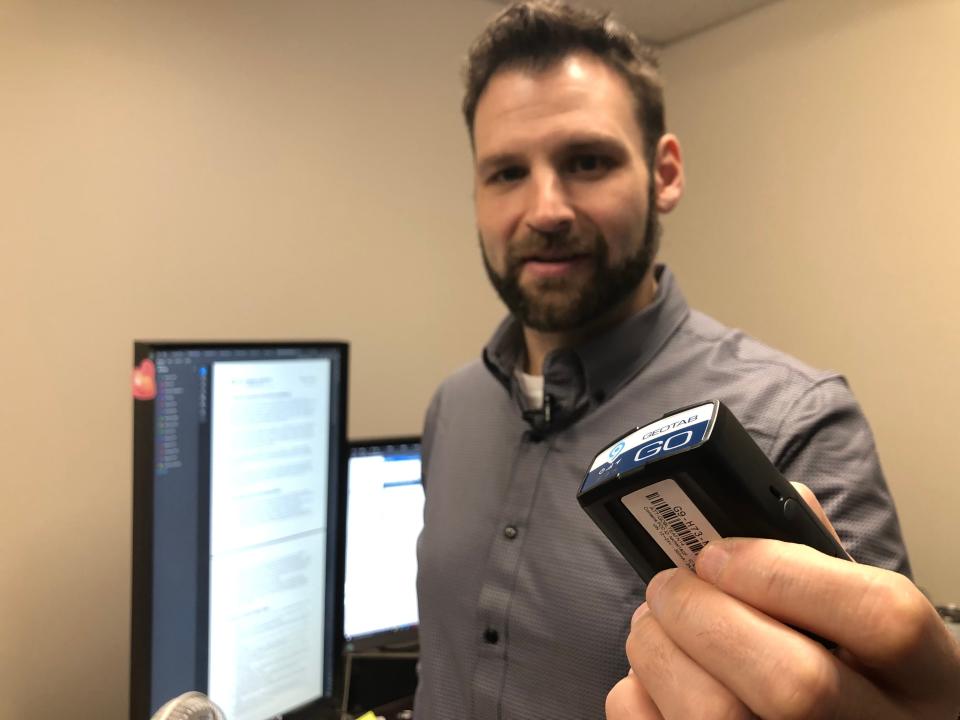How's my driving? St. Joe County starts tracking its cars and how employees use them.

SOUTH BEND — St. Joseph County officials aren’t sure yet how much money they’d save, but they’ve just begun a program to track all of its government-owned vehicles with GPS units to watch how and where they are going and if their engines are sending out mechanical warnings.
Is the county car going over the speed limit?
Is the county employee wearing a seat belt?
Is the car turning corners too hard and too fast?
Is the battery dying?
Although no decision has been made yet, county officials say they’ll use the system — and the data and observations it generates — to eventually decide whether or not to continue allowing take-home vehicles.
Overdue memorial: 103 years later, fallen South Bend police officer's grave gets honored with a marker
Ryan Rodts, director of the county’s vehicle fleet — a newly created position — said that county employees now take home 49 vehicles, or 35% of the fleet.
After he called to compare the number of take-home cars with other county governments, Rodts said, it appears “excessive.”
In his own opinion, county Commissioner Derek Dieter said, “You shouldn’t be using a county vehicle for all of your personal needs.”
Data collection first
All of this excludes all county police vehicles and road maintenance trucks, which already have tracking devices. In fact, Rodts said, the newly added GPS system is the same one used for the road maintenance vehicles.

Dieter and Rodts announced the program on Thursday. The county started to implement the GPS tracking system, which uses a small device that plugs into each vehicle, in recent weeks — with a few more departments yet to cover, Rodts said.
No timeline has been set for making a decision about take-home cars, but, Dieter said, there will be quarterly meetings to review the data.
He suggests the new system will curb wasted spending, but until the data is tracked, Rodts said, they won’t know how much.
Dieter said he and former commissioner Robert Kruszynski started looking two years ago at how the county was managing its vehicles and had trouble finding information such as where vehicles were and where titles were.

“It was a big mess,” Dieter said.
“We had no comprehensive list of how many vehicles we had and how many miles,” Rodts said, feeling that the new system will correct that and answer what the county didn’t know.
Rodts said he can set up the system to send alerts when a vehicle, for example, goes outside of certain boundaries or when a problem flares up in an engine.

Deal with Enterprise
Rodts began his role in August, having worked for the county highway department for six years, most recently as the assistant manager overseeing its fuel system.
Another aspect of the program is that, when aging cars need to be replaced, the county will now lease them from Enterprise Rent-A-Car instead of buying them. He said Enterprise has estimated $1 million in savings over the next 10 years.
Rodts said the agreement with the car rental company will allow it to have equity in the vehicles. As they’re replaced, each will be clearly marked as a county vehicle and include a phone number on the tail end for the public to call if the driver behaved poorly.
Although several cars are already marked, Rodts said, he isn’t sure how many aren’t.
By the numbers
∎ St. Joseph County reports that its fleet of vehicles includes 20 that are used by the parks department, 18 by the prosecutor’s office, 18 by the health department, nine by the DuComb Center, eight by the Juvenile Justice Center and six by the engineering department, among several other departments with fewer vehicles.
∎ The highest fuel expenses in 2023 by county vehicles included $27,500 for the prosecutor’s office, $22,000 for the parks department, $8,300 for the Juvenile Justice Center, $8,200 by the health department and $7,900 by the engineering department.
South Bend Tribune reporter Joseph Dits can be reached at 574-235-6158 or jdits@sbtinfo.com.
This article originally appeared on South Bend Tribune: GPS to track St. Joseph County cars employees to save money take home

